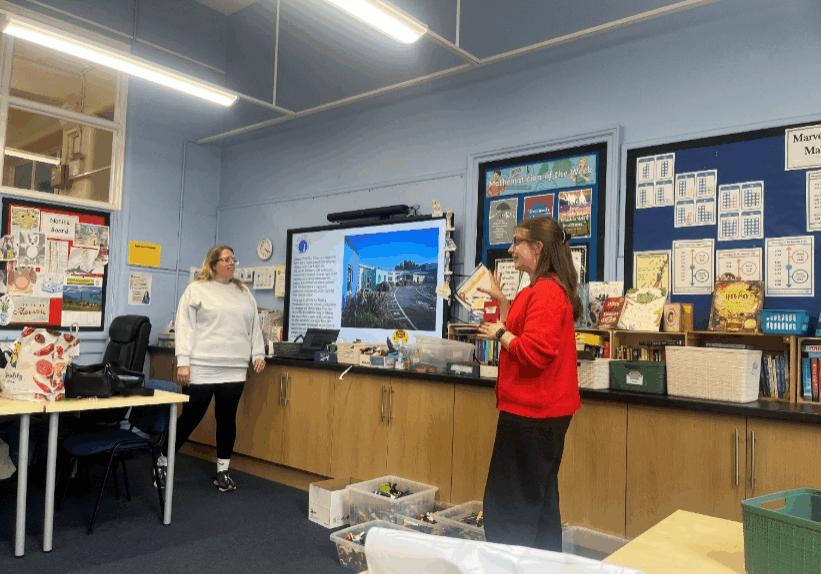From Discussion to Impact: How Our Teacher Reading Group is Shaping Classroom Practice

This year, I have once again had the privilege of leading an Open University Teacher Reading Group (OU TRG) with a dynamic group of around 15 practitioners. Our group this year was made up of teachers and librarians from nursery to secondary school. Our shared aim has been simple but powerful: to deepen our knowledge of reading for pleasure (RfP) pedagogy and practice, and to translate that professional learning into meaningful change within our own schools.
A supportive place for critical reflection
The TRG has provided a supportive space for professional dialogue and critical reflection. Through our half-termly meetings, participants have explored key themes from research—such as the importance of reader identity, the role of informal book talk, and the power of socially engaged reading communities. Each session not only broadened our understanding of the research but also prompted practical questions about how this could look in our own classrooms, libraries, and wider school cultures.
What has been particularly exciting is how the group has moved from reflective discussion to targeted research. Each participant identified an area of pedagogy they wanted to explore further within their school setting using the pedagogies shared on the OU website findings, along with their growing knowing of ‘LIST’ (learner-led, informal, social and texts that tempt) approaches.
Some focused on improving their use of informal book talk; others trialled new strategies for involving families in children’s reading lives. A few were especially interested in developing the reading environment or finding new ways to empower student choice and agency.

The process
Over the months, teachers and librarians gathered data through observations, pupil voice, and reflective activities. They adapted and refined their approaches, supported by feedback from the group. As a leader, it has been inspiring to see the level of commitment and the willingness to take risks in pursuit of better outcomes for young readers.
Several members of the group are now preparing to share their findings more widely through wider staff activities. The ripple effect of our group’s learning is already being felt beyond our meetings, influencing school policies and reshaping reading cultures in meaningful ways.
What began as a shared commitment to reading for pleasure has grown into a research-informed movement over the last 5 years of TRG in North Tyneside, grounded in collaboration and driven by the passion of educators who believe in the transformative power of reading.
Ready to find out more?
If you are considering joining or leading an OU Teacher Reading Group, get involved! The experience of leading, or being part of a TRG is always both professionally enriching and personally rewarding—and the impact on practice has been profound.

